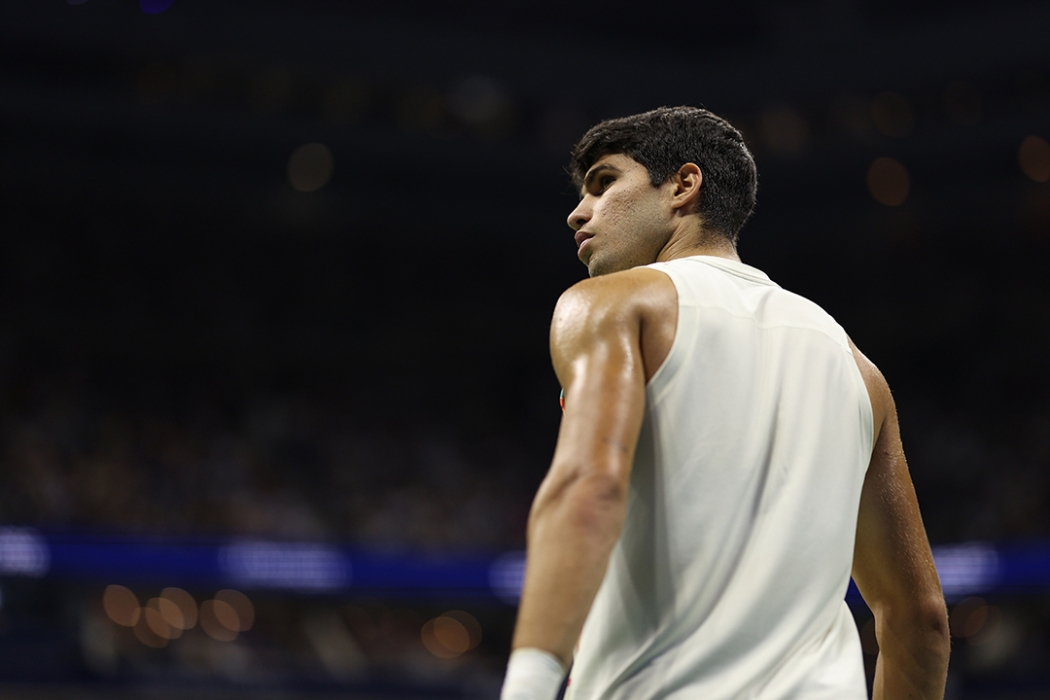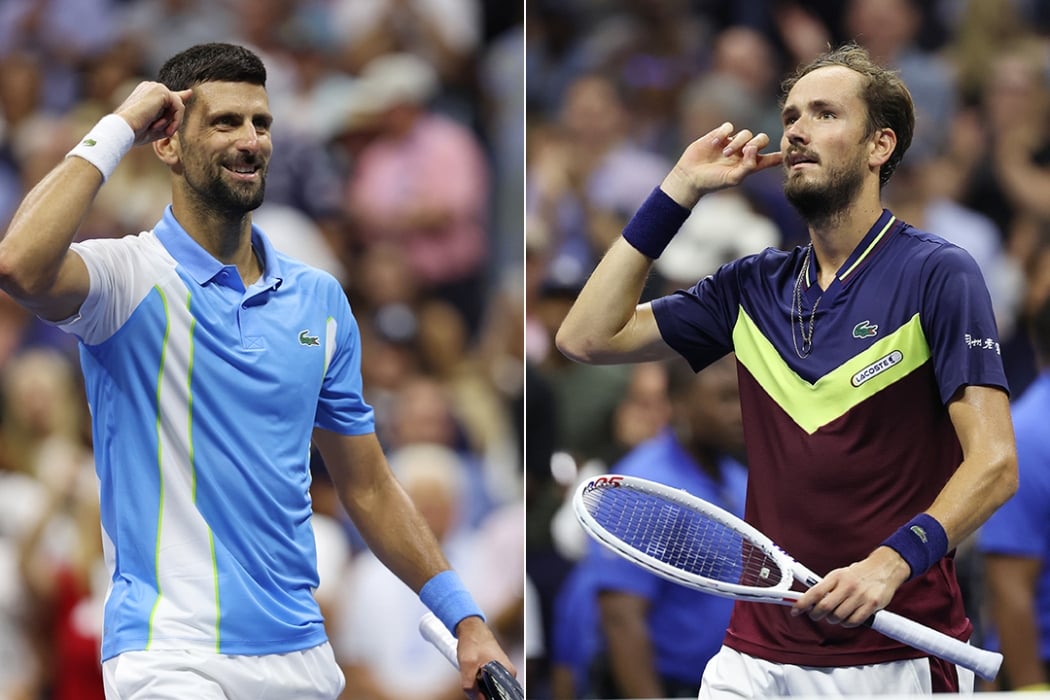When a 15-year old Coco Gauff burst onto the scene at Wimbledon in 2019, most knew they were witnessing a generational talent’s early steps in a journey towards professional tennis stardom.
The American teenager completed that journey by winning this year’s US Open.
Along that journey was significant hype surrounding her early results, predictions of great things she would ultimately achieve, and the belief she would become the sport’s newest transcendent star.
All of it was justified, as she confirmed on Saturday in New York.
This is obviously not the end of the road for Gauff, a player still just 19 years of age. There are other glittering trophies still to chase. There is the world No.1 ranking, soon to be held by Aryna Sabalenka – the player Gauff rebounded to beat in the US Open final.
RELATED: Sabalenka "still positive, motivated" as Grand Slam season ends
But even if she never wins another match, she will always be a Grand Slam champion.
“Right now I'm just feeling happiness and a very, very small bit of relief,” Gauff said after her 2-6 6-3 6-2 triumph.

“I feel like this is a big achievement, but honestly, I feel like I've been so used to this since I was basically 15 years old. I mean, I'm sure it might be a much bigger scale now because of this achievement, but I'm ready. I embrace it.
“I think the pressure has been taken off a little bit, and I still am hungry for more. But yeah, I'm just going to enjoy this and try not to look into the future.”
A summer to remember
Of course, it’s highly likely Gauff will win more matches. In fact, she can barely lose at the moment.
She completed a dream North American summer swing, sweeping the Washington DC, Cincinnati and US Open titles and winning 18 of her 19 matches in the process.
Her win over Sabalenka in Saturday’s finale in New York was her 12th straight victory.

Her performances on the hard courts were quite genuinely transformational, given many worried the teen phenom had plateaued in her progress towards the top of the sport – and perhaps even regressed in some ways.
Yes, she’d already cracked the top 10. Yes, she’d already reached a Grand Slam final, even before that. However, technical flaws were a mounting issue in her game, and there were opponents she simply was not making in-roads against. She was still without a WTA title above 250-level.
Suddenly, it was career-first after career-first. Her first WTA 500 title in Washington D.C. Her first win over world No.1 Iga Swiatek in eight attempts. Her first WTA 1000 title in Cincinnati.
She then powered into her first US Open semifinal to win her 10th straight match – the longest winning-streak of her career.
And then she went all the way to her first major singles title.
It turned out Gauff was fuelled by those doubts about her progress and potential.
“Honestly, thank you to the people who didn’t believe in me,” Gauff said during the presentation, just minutes before receiving the trophy from tennis icon Billie Jean King.
“A month ago, I won a 500 title, and people said I would stop at that. Two weeks ago, I won a 1000 title, and people were saying that was the biggest it was gonna get. Three weeks later I’m here with this trophy right now.
“To those who thought they were putting water on my fire, you were really adding gas to it. And now I’m really burning so bright right now.”
The power of mental strength
Gauff later revealed she had been reading negative comments on social media, to fire herself up, just 10 minutes before the final.
It showcased her extraordinary ability to channel energy, thoughts and commentary in positive ways, an asset further boosted by welcoming Brad Gilbert to her team after a first-round Wimbledon loss to Sofia Kenin that left her questioning her path.
MORE: Kenin "hungry to get back" after Gauff upset at Wimbledon
Gilbert, one of the game’s most celebrated coaches, along with Gauff’s other new coach Pere Riba, made minor technical adjustments to the teenager’s game. But it was her increasingly positive mindset and body language which proved the most notable difference.
Gilbert had an immediate impact when he began working with Andre Agassi in 1994 and Andy Roddick in 2003; both went on to win that year’s US Open.
Twenty years later, it was exactly the same outcome for Gauff.
Despite the positive energy within her team, and the increasing confidence she drew from that plus her stellar results, Gauff admitted she still battled imposter syndrome.
She asterisked her win over Swiatek in Cincinnati as catching the world No.1 on an off day. She questioned whether Karolina Muchova was physically ready for their Cincinnati final.
“I looked in the mirror. I was, like, ‘no, you're a good player, you can beat her regardless of her physical standard’… I told myself you can do it again,” Gauff said of her rematch with Muchova in the US Open semifinals.
“It’s still definitely a part of me but I do think I'm giving myself more credit more. And speaking things into existence is real. I've been trying to speak more positively of myself and actually telling myself that I'm a great player.”

If her run to the US Open title doesn’t cure that syndrome, it’s hard to see what will.
She outplayed a succession of quality opponents, including former world No.1 Caroline Wozniacki, 2017 Roland Garros champion Jelena Ostapenko, and newly-minted top-10 player Muchova, who reached this year’s final in Paris.
Then came her victory over Sabalenka, the reigning Australian Open champion and best-performed player at the majors in 2023.
Continuing a legacy
Gauff becomes the fourth American woman this century, after Venus and Serena Williams, and Sloane Stephens, to win her home Grand Slam title. She is the youngest American to triumph since Serena – a player she grew up idolising – won the 1999 title as a 17-year-old.
Gauff is a continuation of that line of champions, and after reading the list of winners engraved on the trophy – and reacting with awe at how many times Serena’s name appeared – Gauff hoped her inclusion would inspire another champion beyond her.
“They paved the way for me to be here,” Gauff said.
“I remember Sloane winning this trophy in 2017. I lost in the juniors (final of the) US Open. It was an inspiring moment for me to see her win because I grew up watching her and I have known Sloane since I was 10 years old.
“Obviously Serena and Venus, words can't describe what they meant to me. They're the reason why I have this trophy today, to be honest. They have allowed me to believe in this dream growing up. There wasn’t too many just Black tennis players dominating the sport.
“I hope that I'm a continuation of a legacy. I hope another girl can see this and believe they can do it and hopefully their name can be on this trophy too."

